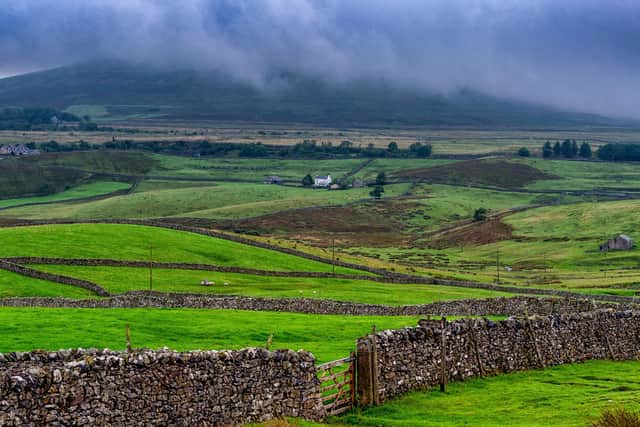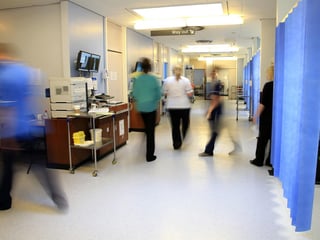North Yorkshire County Council chiefs face 'toughest decision ever' over tax hikes
North Yorkshire County Council's leaders said while the authority could increase council tax by up to 4.99 per cent - a rise of more than £90 for the average household - to help pay for key services for vulnerable people they remained mindful of the volume of residents facing financial hardship due to the pandemic.
In neighbouring York, the Liberal Democrat city council leader accused Ministers of handing a 'tax bombshell' to residents by demanding town halls "cover the cost of the pandemic through regressive and outdated council taxation".
Advertisement
Hide AdAdvertisement
Hide AdCity of York council faces a £15m budget black hole in the upcoming financial year and has now set out plans for £7.9m of savings and efficiencies to help close the gap - double the savings from last year's budget.
Meanwhile Labour-run Wakefield council faces a gap of £25.7m in next year's budget and hopes to make £11m in savings and efficiencies as well as finding £3.6m in its reserves to stay in the black.
Labour says every local authority in Yorkshire and the Humber faces a hike in council tax as a result of December's Local Government Finance Settlement, where councils find out how much they will get to spend on services.
Local government leaders say more than 85 per cent of the potential core funding increase next year was dependent on council tax increasing by five per cent.


Advertisement
Hide AdAdvertisement
Hide AdFollowing numerous Government funding announcements and ongoing Covid-related costs, finance bosses at Tory-run North Yorkshire County Council are continuing to calculate whether it should raise general council tax by up to 1.99 per cent and if it should make an additional three per cent charge for its under-funded social care service.
The recommendation, expected to be made within three weeks, will be presented to the authority's 72 elected members for a decision in February.
For average band D properties last year, the council levied £1,244 of basic council tax, as well as a social care charge of £120, representing some 73 per cent of the average £1,860 council tax bill.
The remainder of residents bills' was split between district and borough councils, which received at least £114 per average household, parish and town councils an average of £41, while £266 and £73 respectively went towards the county's police and fire services.
Advertisement
Hide AdAdvertisement
Hide AdThe authority's executive member for finance, Councillor Gareth Dadd, said: "It's a very difficult balance, because whilst we know the county council needs that funding to run critical services for vulnerable people, we know that to take money out of the North Yorkshire economy at this critical time is not the best situation to be in.
"Never has that dilemma between funding critical services and raiding the coffers of the economy of North Yorkshire been more acute."
The council's leader Carl Les added: "There's no doubt people's incomes have been hit severely this year, but there's also no doubt our services are absolutely vital for some people this year. So we have got to get that balance right between providing services and not raising too much council tax."
He said the council would have to dip further into its reserves as the funding made available by the Government for Coronavirus expenses did not fully cover the authority's £80m Covid outgoings, but added the Government had "stood shoulder to shoulder" with the county council through the pandemic.
Advertisement
Hide AdAdvertisement
Hide AdThe authority's leaders have previously highlighted they feel residents in the county pay too much council tax, particularly in comparison to London residents, whose services can be funded through parking charges.
Leader of the council's Independent group Councillor Stuart Parsons said the authority had not fought strongly enough to get the government to reimburse all its Covid-related spending and loss of income as a result of the pandemic.
City of York Council leader Keith Aspden said his team "have had to make decisions we would rather not make" to plug the £15 million hole in the budget predicted in the next financial year.
It means council tax bills will increase by the maximum amount possible of 4.99 per cent before a local referendum is required.
Advertisement
Hide AdAdvertisement
Hide AdCoun Aspden said adult and children's social care services, which have seen a huge increase in demand, will be prioritised in the coming year with an extra £2.6 million put into this department.
And a £3.5 million covid recovery fund will be created to help businesses and residents - including money set aside for mental health support.
But cuts will have to be made in some areas to save cash. Senior councillor Nigel Ayre said many of the savings will come from back office services such as finance, human resources, procurement, IT and legal services in order to protect front line work such as providing social care.
There is also set to be an increase in fees for some services and budget papers warn some jobs will be lost in the next year, with further details due to be released in February.
Coun Aspden said York is facing "unprecedented financial challenges" as the demand for services goes up and income from sources such as car parking has gone down.
